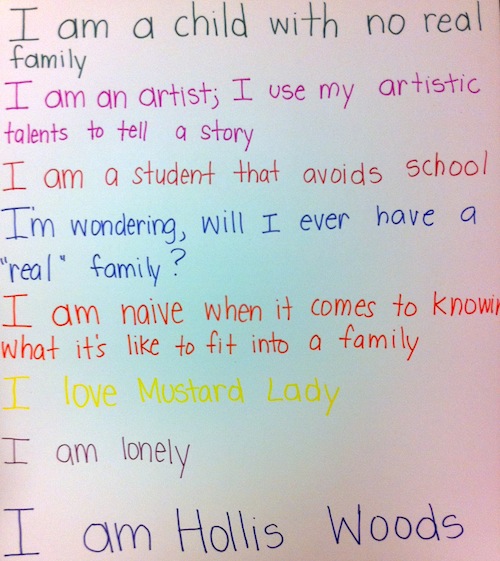

It's nothing but a kid book. It's boring because the story is predictable. However, there is an inspirational part of the story that I realized during the book club discussion.
Sometimes what you see is so deep in your head you're not even sure of what you're seeing. But when it's down there on paper, and you look at it, really look, you'll see the way things are.
Look at a picture one way and you'll see one thing. Look again and you might see something else.
You see the same thing differently before and after you're in a particular situation. For example, songs are just songs. But the lyrics sound different when you break up with a boy/girlfriend. They sing your story.
Hollis Woods is the place where babies are abandoned. Hollis has been in many foster homes and what she really wishes is a family. But Hollis thinks she is a mountain of trouble and thus she doesn't deserve a family. After a car accident, she declines the warm offer to live together with the Regans though she's desperately in need of parents and a brother. Later she catches different things from a picture she drew. The message has always been there, but she didn't recognize it. Now she wants to get back together with the Regans.
Everyone has the same experience; you've looked at a painting and seen one thing, only to look again later and discover something different.
When I first looked at the calligraphy painting in my teens, it was just another masterpiece of Joseon Dynasty. When I looked again in my mid twenties, I could understand what the artist truly wanted to render through the desolate landscape.
I was struggling to build good relationships with people. People that I had thought were trustworthy turned out to be unreliable. I was lost and confused.
The artist lost his enormous power and was banished in a remote island. Nobody came to see him but one follower. He realized who was a true friend or a fair-weather friend, and then represented the ideas with pine trees. Pines are evergreen and never change colors even when it's cold.

